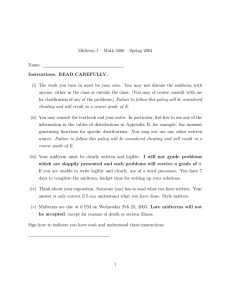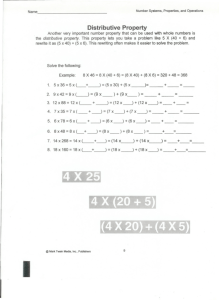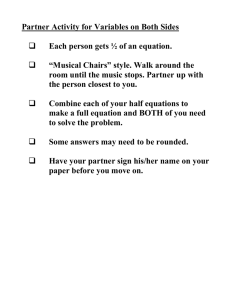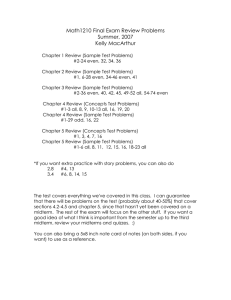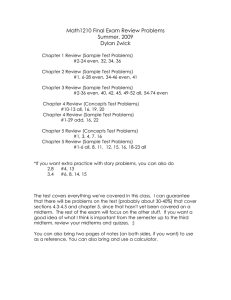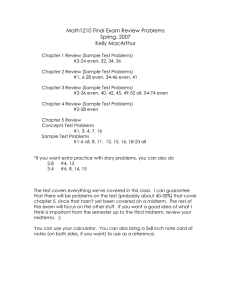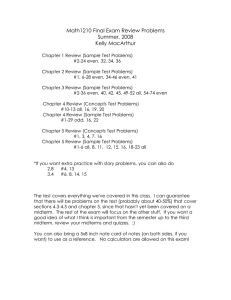Midterm 1 – Math 5080 – Spring 2004 Name: Instructions. READ CAREFULLY.:
advertisement
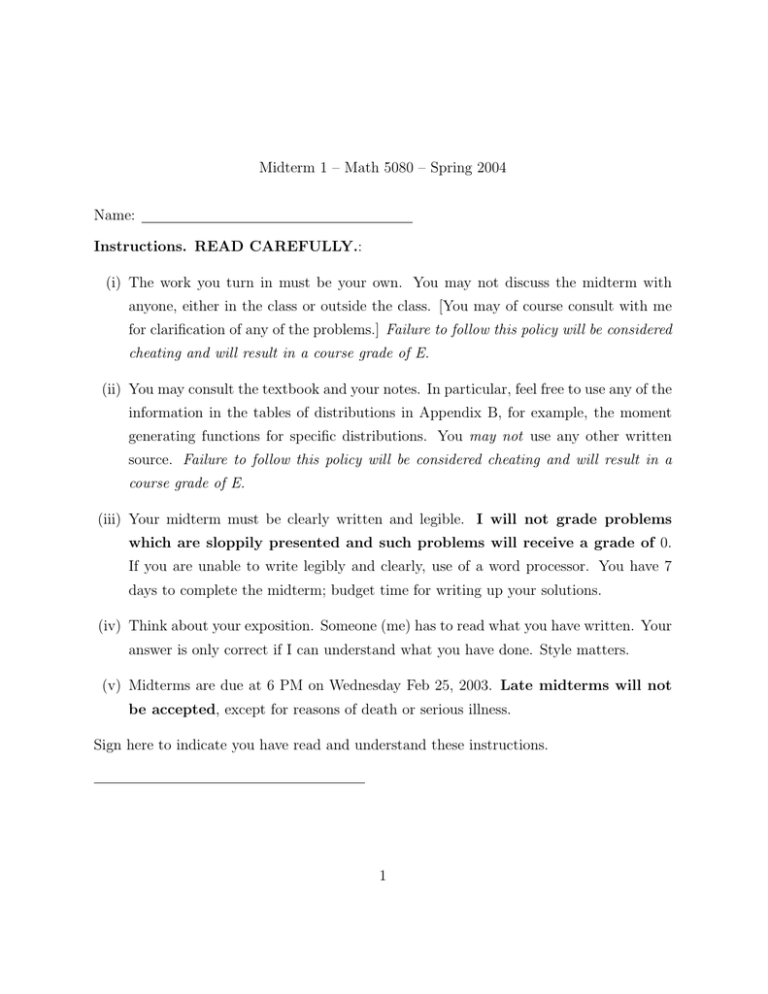
Midterm 1 – Math 5080 – Spring 2004 Name: Instructions. READ CAREFULLY.: (i) The work you turn in must be your own. You may not discuss the midterm with anyone, either in the class or outside the class. [You may of course consult with me for clarification of any of the problems.] Failure to follow this policy will be considered cheating and will result in a course grade of E. (ii) You may consult the textbook and your notes. In particular, feel free to use any of the information in the tables of distributions in Appendix B, for example, the moment generating functions for specific distributions. You may not use any other written source. Failure to follow this policy will be considered cheating and will result in a course grade of E. (iii) Your midterm must be clearly written and legible. I will not grade problems which are sloppily presented and such problems will receive a grade of 0. If you are unable to write legibly and clearly, use of a word processor. You have 7 days to complete the midterm; budget time for writing up your solutions. (iv) Think about your exposition. Someone (me) has to read what you have written. Your answer is only correct if I can understand what you have done. Style matters. (v) Midterms are due at 6 PM on Wednesday Feb 25, 2003. Late midterms will not be accepted, except for reasons of death or serious illness. Sign here to indicate you have read and understand these instructions. 1 Problem 1. Let X be a uniform random variable on [0, 1]. Consider the function g : [0, 1] → R defined by 12x 4 − 12x 12x − 4 g(x) = 8 − 12x 12x − 8 12 − 12x if 0 ≤ x < 1/6 if 1/6 ≤ x < 1/3 if 1/3 ≤ x < 1/2 if 1/2 ≤ x < 2/3 if 2/3 ≤ x < 5/6 if 5/6 ≤ x < 1 . Find the pdf of Y = g(X). Hint: Sketch the function g. Problem 2. Let X and Y have a joint pdf 8 xy if x > 0, y > 0, 1 < x + y < 2 , f (x, y) = 15 0 otherwise. Find the pdf of X + Y . Problem 3. Let X, Y be independent Normal(0, 1) random variables. (a) What is the joint pdf of R = X 2 + Y 2 and Θ = arctan(Y /X)? (b) What are the marginal distributions of R and Θ? Are R and Θ independent? Problem 4. Let X and Y be independent Normal(0, 1) random variables. (i) Find the distribution of U = XY −1 . (ii) What is the expectation of U ? Problem 5. Let X1 , X2 , X3 , X4 be independent and identically distributed random variables, each with a Uniform[0, 1] distribution. Let Y1 , Y2 , Y3 , Y4 denote the order statistics for this random sample. Find the pdf for Y3 − Y2 . 2 Problem 6. Let X and Y be independent Normal(0, 1) random variables. What is the joint distribution of X−Y √ 2 and X+Y √ 2 ? √ √ Hint: What kind of transformation is (x, y) 7→ ((x − y)/ 2, (x + y)/ 2)? Problem 7. If X1 , X2 , . . . , Xn are i.i.d. Exponential(λ) random variables, what is the distribution of X1 + · · · + Xn ? Justify your answer. Problem 8. Let Xn be a negative Binomial r.v. with parameters r and p = n/λ. Find a d random variable X so that n1 Xn −→ X. Justify your answer. Hint: What is the relationship of the negative binomial to the Geometric? Recall the limit law we proved in class for the Geometric. Problem (Extra Credit). Let Xn be a Binomial(n, 1/2) r.v. Prove using moment generating functions, without using the Central Limit Theorem, that if Yn = n−1/2 (Xn − 12 ), d then Yn −→ N , where N is Normal(0, 14 ). 3
